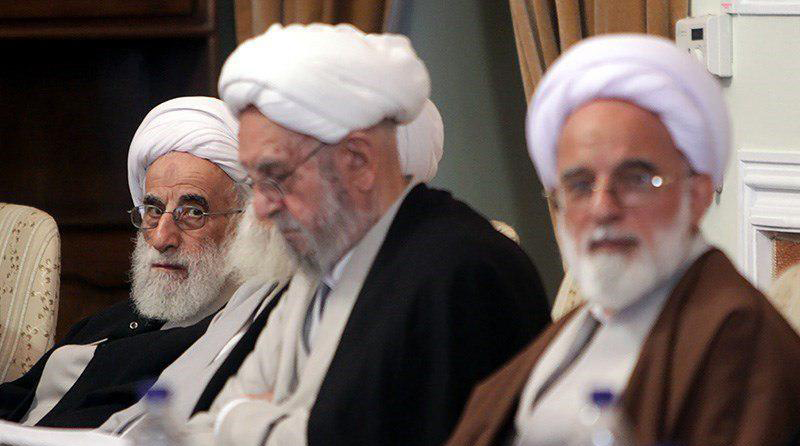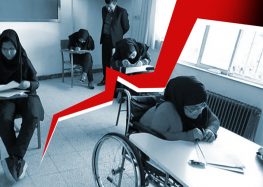Guardian Council Rejects Bill That Could Protect Rights of People Living With Disabilities in Iran

Guardian council meeting
Iran’s Guardian Council has rejected a proposed bill that would make it a legal right for people living with disabilities in the country to have a say about issues pertaining to their community.
The body of six clerics and six jurists vets laws and elections for conformity with Islamic principles and its interpretation of the Constitution.
“Refusing to take advice from people with disabilities and preventing them from participating in decision-making has been one of the main reasons why many of the actions and plans to improve the lives of the disabled in Iran have failed,” an Iranian disability rights activist told the Center for Human Rights in Iran (CHRI) on February 27, 2018.
“For instance, in many cases, a lot of money has been spent with good intentions to upgrade public pathways but in the end, they did not meet the practical needs of the disabled,” added the source, who requested anonymity for security purposes. “Lawmakers should stand firmly behind their legislation and defend the disabled community’s right to actively participate in their own affairs.”
On January 20, 2018, the Guardian Council rejected the “Bill For the Protection of the Rights of People with Disabilities” that was passed by the Iranian Parliament on December 27, 2018, partly because of its Article 32, which gives people with disabilities and organizations providing services to them the power to vote in a national committee that would monitor the implementation of laws for the disabled.
Articles 16, 17, 18, 19 and 32 of the bill mention the Coordination and Monitoring Committee, which would include “five representatives made up of people with disabilities as recommended by people-based organizations.” Removing this committee from the bill would take away one of the most progressive aspects of the legislation.
UN’s Convention on the Rights of Persons with Disabilities (CRPD), which Iran adopted in 2009, calls for states to “undertake appropriate and effective measures in this regard, between and among states and, as appropriate, in partnership with relevant international and regional organizations and civil society, in particular organizations of persons with disabilities.”
A representative of the Guardian Council said the council’s decision to reject the bill was supported by the Constitution, which exclusively assigns government functions to the Executive Branch.
Article 60 states, “The functions of the Executive, except in the matters that are directly placed under the jurisdiction of the leadership by the Constitution, are to be exercised by the president and the ministers.”






